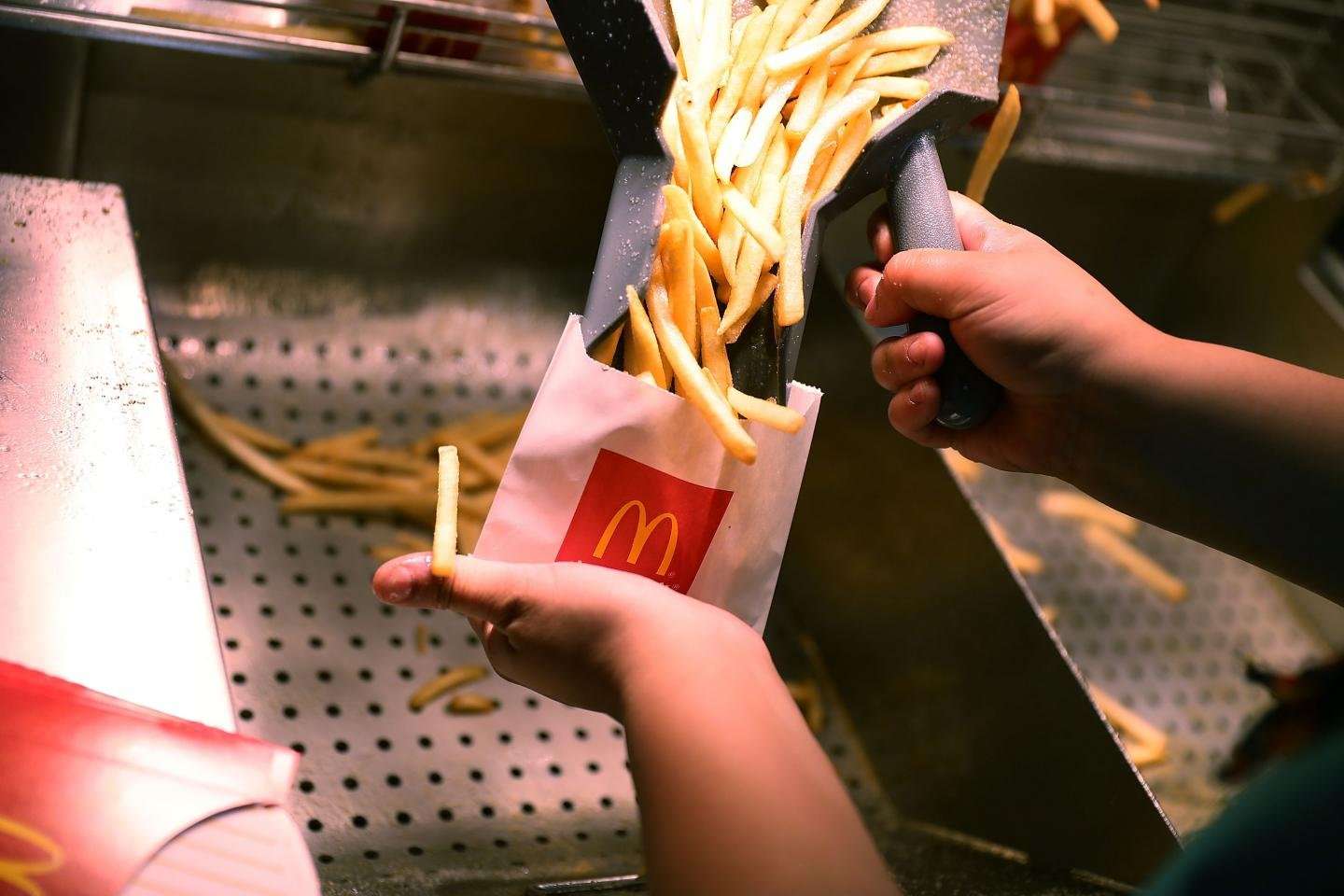Japanese scientists may have discovered a cure for baldness—and it lies within a chemical used to make McDonald’s fries.
A stem cell research team from Yokohama National University used a “simple” method to regrow hair on mice by using dimethylpolysiloxane, the silicone added to McDonald’s fries to stop cooking oil from frothing.
Preliminary tests indicated that the groundbreaking method was likely to be just as successful when transferred to human skin cells.
Keep up with this story and more by subscribing now
According to the study, released in the Biomaterials journal last Thursday, the breakthrough came after the scientists successfully mass-produced “hair follicle germs” (HFG) which were created for the first time ever in this way.
HFGs, cells that drive follicle development, are considered the holy grail in hair-loss research. The scientists said use of dimethylpolysiloxane was crucial to the advancement.
“The key for the mass production of HFGs was a choice of substrate materials for the culture vessel,” Professor Junji Fukuda, of Yokohama National University, said in the study. “We used oxygen-permeable dimethylpolysiloxane (PDMS) at the bottom of culture vessel, and it worked very well.”
The technique created 5,000 HFGs simultaneously. The research team then seeded the prepared HFGs from an HFG chip, a fabricated, approximately 300-microwell array, onto the mouse's body.
“These self-sorted hair follicle germs were shown to be capable of efficient hair-follicle and shaft generation upon injection into the backs of nude mice,” Fukuda said.
Within days, Fukuda and his colleagues reported black hairs on the areas of the mouse where the chip had been transplanted. The photos below demonstrate the findings.
"This simple method is very robust and promising,” Fukuda said. “We hope this technique will improve human hair regenerative therapy to treat hair loss such as androgenic alopecia (male pattern baldness). In fact, we have preliminary data that suggests human HFG formation using human keratinocytes and dermal papilla cells."
In 2016, the U.S. hair loss treatment manufacturing industry was worth $6 billion. This included companies that produced restorative hair equipment, such as grafts for hair restoration, as well as oral and topical treatments.
McDonald's did not respond to Newsweek's request for comment at the time of publication.

slackwalker on February 5th, 2018 at 17:05 UTC »
Dimethylpolysiloxane is a type of silicone used in a huge variety of applications, not just McDonald's fries prep. It's silly putty.
Also, from the article it appears this involves an application of the product, not ingestion of it, so eating Mickey D's won't help you.
Jimblejang on February 5th, 2018 at 16:36 UTC »
But won't bald people get burned when they dip their heads in the deep fryer?
GerblinPiker on February 5th, 2018 at 16:30 UTC »
My brother is thin and balding. I'm a big, fat McDonald's boy, and I have a full head of hair. This all checks out.